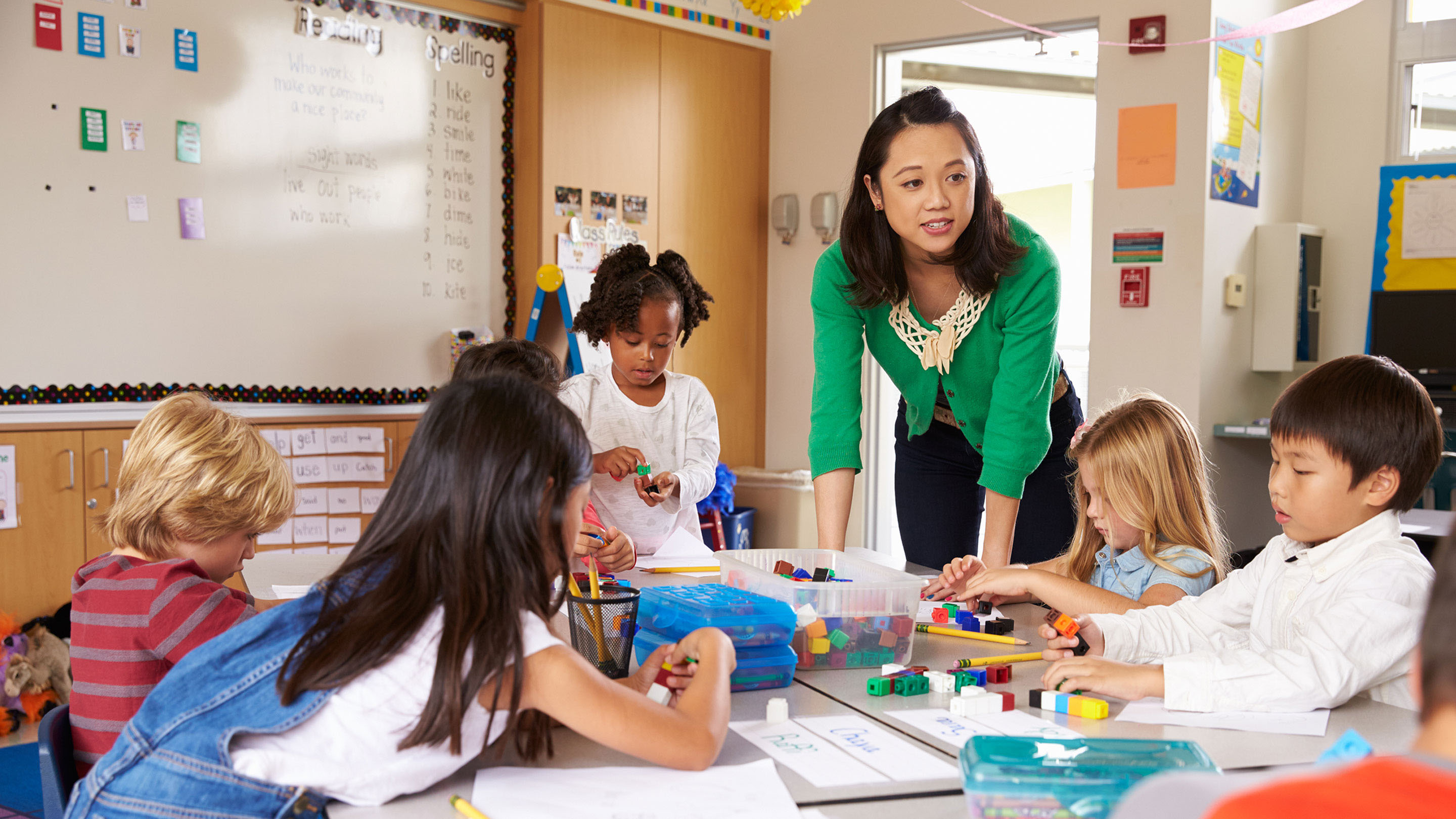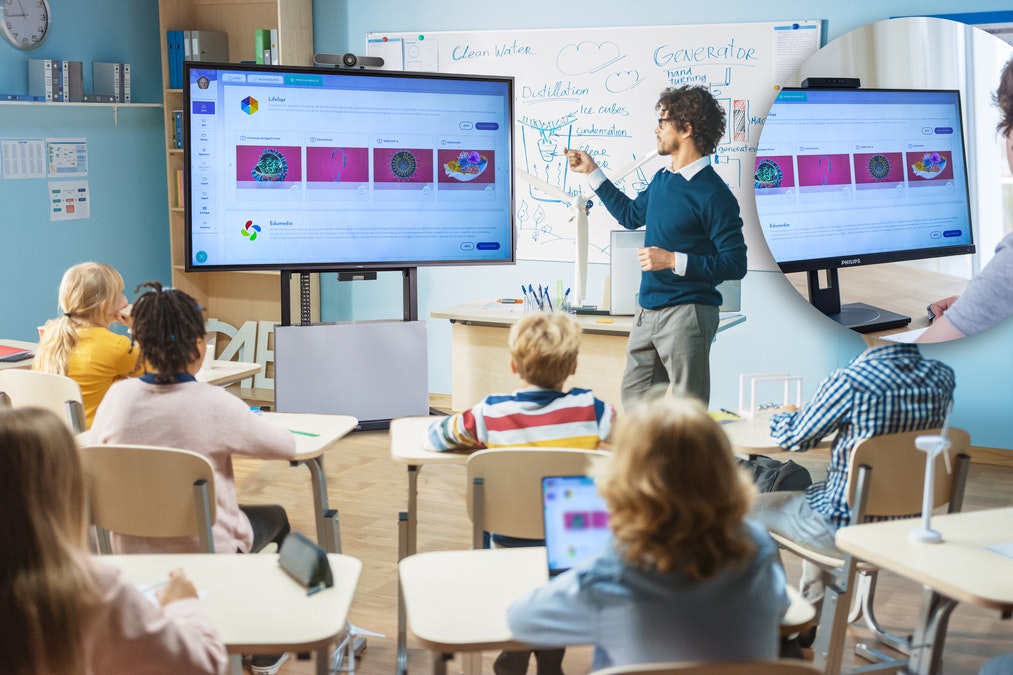Expert Tutors Offering Primary Science Tuition Singapore for All Grades
Expert Tutors Offering Primary Science Tuition Singapore for All Grades
Blog Article
Discovering the Different Teaching Strategies in Key Scientific Research Education And Learning Today
Inquiry-based understanding, hands-on experiments, and the integration of modern technology are redefining how instructors engage young minds. In addition, joint approaches and differentiated instruction are being utilized to cater to the varied needs of trainees, improving both engagement and understanding.
Inquiry-Based Understanding
Inquiry-Based Discovering (IBL) is a pedagogical approach that encourages students to explore scientific ideas through questioning, examination, and hands-on trial and error. This method emphasizes the role of pupils as energetic participants in their knowing, promoting important reasoning and analytical abilities. By engaging with real-world concerns, pupils end up being motivated and interested, which boosts their understanding of scientific concepts.
In IBL, instructors function as facilitators, leading students as they navigate their inquiries as opposed to supplying information straight. This student-centered technique permits for differentiation, fitting numerous discovering speeds and designs. Pupils establish skills in formulating theories, designing experiments, and assessing data, which are crucial for scientific proficiency.
In addition, IBL cultivates partnership amongst pupils, encouraging them to share ideas and findings. This collective questions advertises social abilities and a sense of area within the class. Additionally, the procedure of questions encourages resilience, as trainees discover to accept failure as a stepping stone towards understanding.
Hands-On Experiments
Hands-on experiments are a vital component of effective science education and learning, enhancing the concepts of inquiry-based understanding. These experiments enable students to involve directly with scientific principles, fostering a deeper understanding via experiential understanding. By adjusting materials and observing results, young students can understand abstract concepts in concrete ways.
Such activities promote essential reasoning and analytic abilities, as students assume outcomes, conduct experiments, and examine results. This process urges them to ask questions, improve their understanding, and establish a clinical attitude. Hands-on experiments can be customized to diverse knowing styles, making certain that all students have the possibility to engage meaningfully with the material.
Moreover, hands-on experiments often motivate cooperation amongst peers, advertising team effort and interaction abilities. Functioning in groups allows pupils to share concepts, review findings, and pick up from each other, which improves their overall educational experience.
Integrating hands-on experiments right into the main scientific research curriculum not just enriches the finding out atmosphere however additionally cultivates a lifelong rate of interest in scientific research. By actively taking part in their education, trainees are most likely to develop an interest for scientific inquiry that prolongs past the class.

Technology Integration
Incorporating modern technology right into primary science education and learning has come to be significantly essential in promoting pupil interaction and enhancing finding out outcomes. The use of electronic devices, such as interactive simulations, online laboratories, and instructional software, gives trainees with chances to check out clinical principles in innovative ways. These resources help with a much deeper understanding of complicated subjects by allowing students to visualize and manipulate variables that would certainly be impractical in a traditional class setting.
In addition, technology assimilation urges personalized discovering experiences. Pupils can advance at their own rate, taking another look at challenging ideas via multimedia sources, which provide to different knowing styles. This adaptability not just supports private development however additionally grows a sense of freedom in learners.
Additionally, technology functions as a bridge to real-world science, connecting pupils with try this out present research and specialist payments. Accessibility to on-line data sources and clinical journals broadens pupils' viewpoints on scientific query and fosters vital thinking skills.
Collaborative Knowing
Joint knowing plays a crucial role in key science education by cultivating team effort and communication abilities amongst students. This technique encourages students to collaborate, share knowledge, and participate in analytic, which boosts their understanding of scientific concepts. By getting involved in group activities, trainees learn to express their ideas, listen to diverse perspectives, and work out services, every one of which are crucial skills in both academic and real-world contexts.

Research indicates that joint discovering can result in enhanced motivation and interaction in science subjects, as trainees find pleasure in shared experiences (primary science tuition Singapore). Furthermore, this strategy prepares students for future joint endeavors, equipping them with the skills necessary for effective synergy in college and expert environments. Inevitably, welcoming collective discovering in primary scientific research education and learning can substantially improve the learning experience and advertise a much deeper understanding of scientific questions
Separated Instruction

Differentiated article guideline can materialize in various methods, such as varying the web content, processes, or items of understanding. For example, teachers might utilize tiered assignments that offer varying levels of complexity, allowing students to work at their respective readiness levels. In addition, flexible grouping methods can facilitate collaboration amongst pupils with various capabilities, fostering peer learning.
Analysis plays a vital duty in this approach, as it notifies guideline and assists teachers recognize each pupil's special needs. Formative assessments, such as observations and quizzes, can direct teachers in changing their methods to improve discovering outcomes. primary science tuition Singapore. Inevitably, by applying set apart instruction in primary scientific research education, instructors can cultivate an extra efficient and equitable understanding environment, equipping all students to reach their complete possibility in recognizing clinical sensations
Final Thought
In summary, the varied training techniques hop over to these guys in primary science education and learning, including inquiry-based knowing, hands-on experiments, innovation combination, collaborative understanding, and set apart instruction, collectively add to a more efficient discovering setting. These techniques advertise important reasoning, analytic skills, and a much deeper comprehension of scientific principles. By executing these techniques, teachers can develop engaging and helpful class that attend to the different demands of pupils, eventually cultivating a long-lasting rate of interest in science and enhancing scholastic accomplishment.
Inquiry-Based Learning (IBL) is a pedagogical approach that motivates trainees to check out clinical principles through doubting, investigation, and hands-on experimentation.Collective learning plays a crucial role in key science education by fostering team effort and interaction abilities among pupils.Research suggests that collective understanding can lead to boosted inspiration and involvement in science topics, as students discover pleasure in shared experiences.In promoting a comprehensive understanding atmosphere, separated guideline arises as a crucial approach to accommodate the diverse needs and abilities of pupils in key scientific research education. Ultimately, by applying differentiated direction in primary scientific research education, instructors can cultivate a more fair and efficient understanding atmosphere, equipping all students to reach their full potential in comprehending clinical phenomena.
Report this page